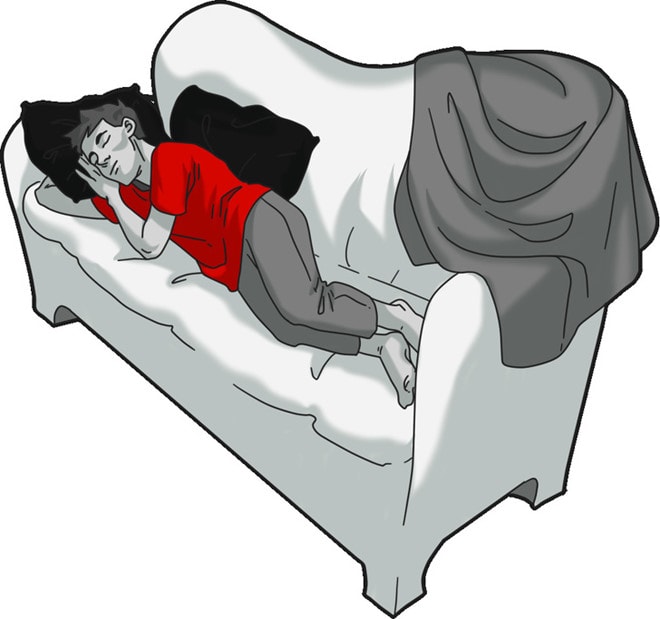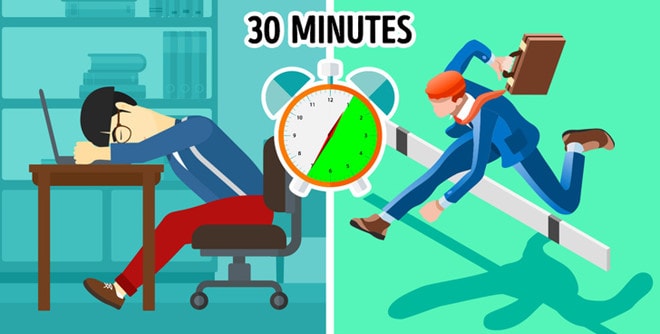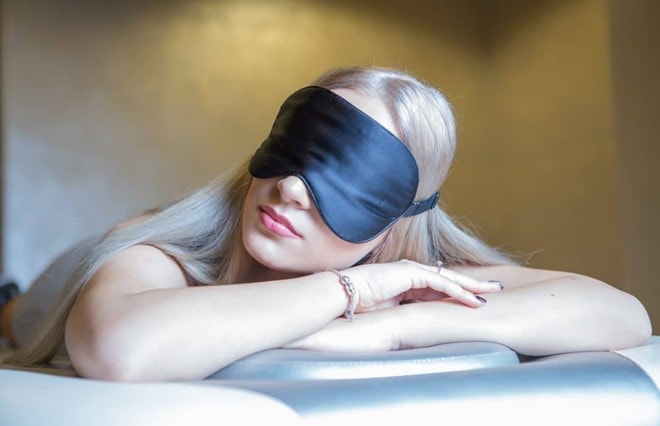How long should you really nap for?
The best length of a nap can range from 10 to 90 minutes, depending on your work and schedule.
|
| Benefits of taking a nap:Napping is like a reboot for your brain. Not only does it help us feel less sleepy and more alert, it also improves cognitive function, reflexes, short-term memory, and mood. Napping also reduces stress, blood pressure, aids in weight loss, and reduces the risk of diabetes and cardiovascular death. |
|
| 10-20 minutes: Increase alertness.According to experts, a short nap of about 10-20 minutes helps you stay alert and increase energy best. The short duration of sleep is designed to prevent people from entering deep sleep. Busy people will be suitable for this nap. |
|
| 30 minutes: Eliminate fatigue.Although a 30-minute nap can make it harder to wake up, the benefits are well worth it. It improves memory function, reduces stress, increases concentration, and reduces the risk of diabetes and dementia. Experts say you'll do yourself a favor by enjoying a 30-minute nap in the middle of the day. After being awake for 7-8 hours, your body and brain need to rejuvenate. |
|
| 60 minutes: Cognitive memory processing.If your job involves a lot of mental activity, this may be the perfect nap time for you. An hour of sleep will give you deep sleep, which relaxes your brain and increases your cognitive abilities, as well as your ability to remember facts and figures. It also helps fight boredom. On the downside, however, deep sleep means you’ll wake up feeling groggy and it will take you longer to wake up. |
|
| 90 minutes: Full sleep cycle.This is a full night's sleep that includes both the light and deep stages of sleep. You may experience REM (rapid eye movement), the stage associated with dreaming. According to Dr. Sara Mednick, a sleep researcher in the US, a 90-minute nap is beneficial for both physical and mental health. It improves memory and enhances creativity. The best part is that you can easily wake up from this short nap without feeling groggy. |
|
| Take a nap properly:Light, even artificial light from a TV or phone, can interfere with napping, making it difficult to fall asleep. Use a sleep mask to save time. Also, try to nap at the same time every day, as this helps to balance your internal body clock and maximize the benefits of napping. However, avoid napping right after eating or too close to bedtime. |








